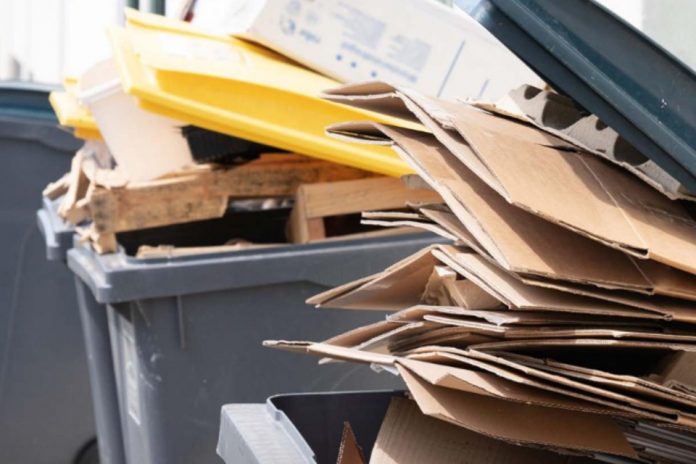Further boosting European paper and cardboard packaging recycling rates by just 9 percent could add 5 million tonnes of the material, worth up to 1 billion Euro, to recycling streams each year by 2030, according to new research by DS Smith, the sustainable packaging company.
Recycling rates for paper and card have been in decline for the past five years, achieving an 81 percent average across the Europe in 2022. DS Smith’s report lays out clear actions that can help further boost the rate to 90 percent, supercharging the circular economy around what is already the most-recycled material in Europe.
The action plan comes as the growth of ecommerce is contributing to increased packaging consumption, with new data estimating EU countries will generate 39 million tonnes of paper and card packaging each year by 2030.
The report from DS Smith, Wasted Paper: A Path To Better Recycling, also reveals that recycling rates need a particular boost among younger people. Less than two in three (62 percent) 18–24-year-old Europeans recycle almost all of their paper and card, compared to nearly nine in ten (88 percent) over 65s. This may be because of lack of understanding and trust for the process, as less than two thirds (62 percent) of Gen Z believe that what they put in their bin is recycled correctly by authorities, compared with more than seven in ten (72 percent) of over 65s.
In Romania, over 90 percent of the respondents say that they want to recycle more household paper and cardboard packaging, but only 70 percent feel that they have the necessary means to recycle as much as they can. At the same time, over 78 percent say that significant progress was made, and it is now easier to recycle paper and cardboard than it was 5 years ago.
Looking at the differences between generations, a little over 52 percent of Romanians aged 18-24 recycle most of the paper and cardboard they use, while 70,3 percent of respondents aged 65 and above claim to do the same.
Romania is the 10th largest producer of paper and card waste in Europe and ranks 29 out of 30 European nations for recycling. In 2020, 63 percent of paper and card was recycled in Romania, compared to a European average of 82 percent, and DS Smith predicts this could drop to 43 percent by 2030.
To realise the opportunity and further boost recycling rates, DS Smith is calling for European, national, and local legislators to come together and implement four key recommendations:
- Legislate to mandate at-home source segregation, meaning paper and card is separated from other materials by consumers in their homes and in on-the-go bins;
- Introduce consistent recycling systems at a national level and across local authorities;
- Standardise recycling labels and boost consumer education;
- Offer clear legislation to give businesses the confidence to invest in recycling.
John Melia, Strategy Development and Innovation Director at DS Smith’s Recycling Division, said: “Paper and card is the most recycled packaging material in Europe already and one of the most circular materials on the planet. But while nearly four in five pieces of card and paper are already recycled, there’s a huge opportunity to do even better – creating economic value and thousands of jobs, while also saving the earth’s precious resources. If legislators, local authorities, businesses and consumers work together, we believe we can make sure no packaging becomes waste.”
Adrian Bădălică, General Manager, DS Smith Recycling Romania adds: “Although the national recycling rate has improved in recent years, an important quantity of waste still ends up in landfills, thus becoming the main competitor for paper mills. We believe that the solutions are within reach of us with the help of the right legislations, and the Romanian authorities have made efforts to find real solutions to improving recycling rates, including increasing the amount of taxes for waste going to landfill and the tax on non-recyclable packaging. If we succeed in establishing a unitary approach as a country, Romania’s economy would have a lot to gain.”




